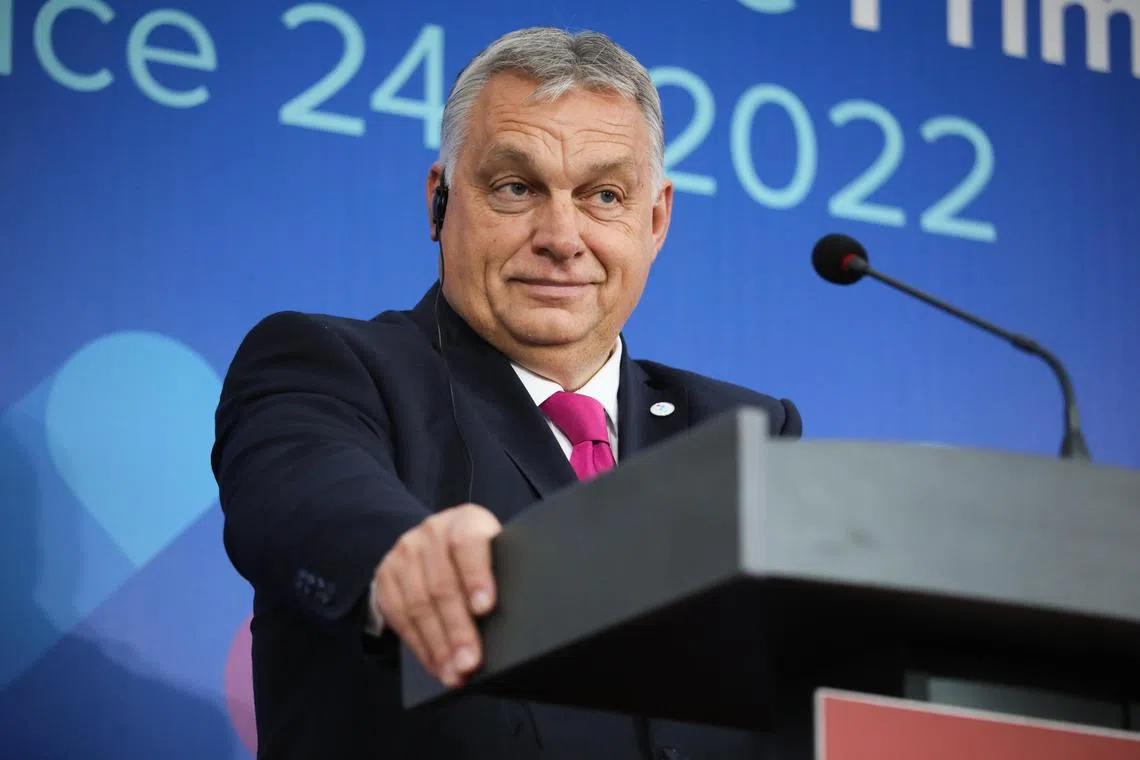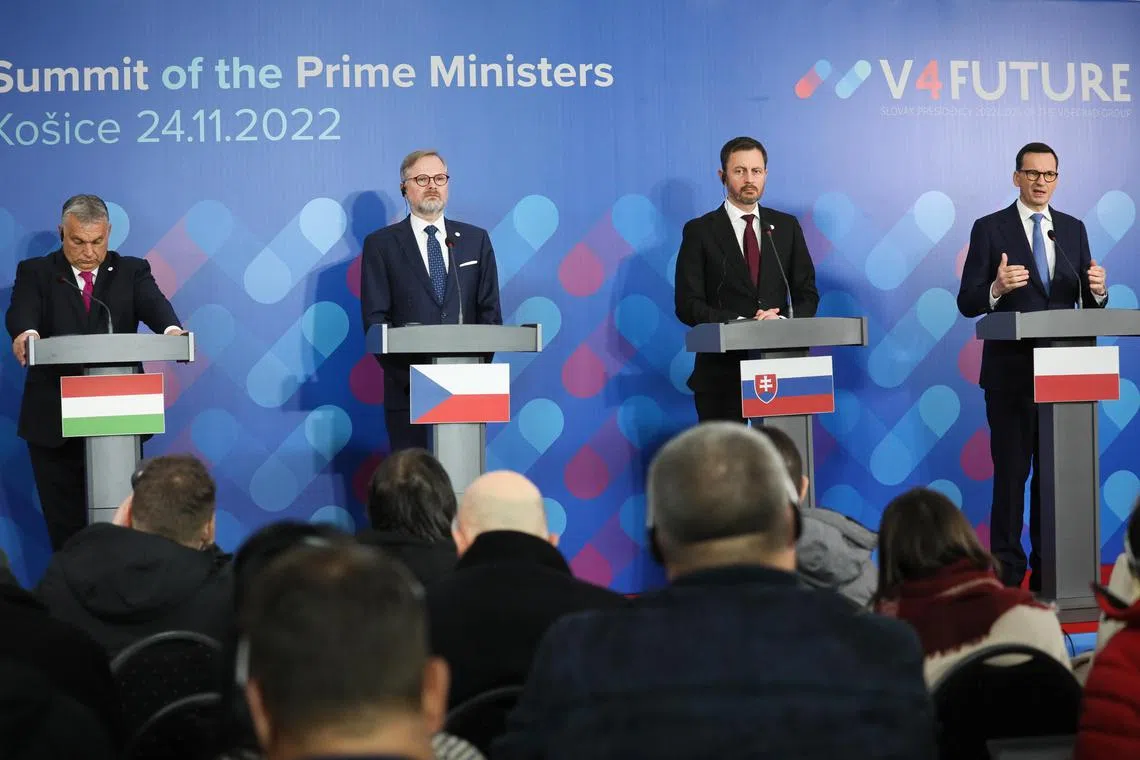Czechs, Poles criticise Hungary's Orban amid divisions over Ukraine war
Sign up now: Get ST's newsletters delivered to your inbox

Hungarian Prime Minister Viktor Orban has opposed harsher European sanctions on Russia including on energy supplies.
PHOTO: EPA-EFE
Follow topic:
PRAGUE - The leaders of Poland and the Czech Republic publicly criticised Hungary’s Prime Minister Viktor Orban on Thursday, laying bare tensions within central Europe’s Visegrad Group that have been exacerbated by the war in Ukraine.
Unity within the Visegrad Group, set up in 1991 as the region emerged from decades of communist rule, has been sorely tested by the war, with Mr Orban opposing harsher European sanctions on Russia including on energy supplies.
By contrast, Hungary’s three Visegrad neighbours - which also include Slovakia - are among the EU’s toughest critics of Russian President Vladimir Putin’s actions in Ukraine.
“This is not the best of times for the (Visegrad) format, and Hungary’s different attitudes are significantly influencing and complicating the situation,” Czech Prime Minister Petr Fiala said as he headed for a meeting of Visegrad leaders in Slovakia.
“I make no secret of the fact that the views of the Hungarian prime minister, some of which can even be described as provocative, do not help this cooperation to proceed as well as in the past,” Mr Fiala added.
Soccer scarf
This week Mr Orban further annoyed his neighbours by wearing a a “Greater Hungary” scarf to a soccer match - which showed territory now in Austria, Slovakia, Romania, Croatia and Serbia as part of Hungary, which drew sharp criticism from neighbours.
At the meeting in the eastern Slovak city of Kosice, Slovak Prime Minister Eduard Heger gave Mr Orban a Slovak scarf, saying on Facebook he had noticed Mr Orban’s was an old one.
Asked about the issue at a news conference, Mr Orban said: “Take it easy.”
Poland, an ally of Hungary in their past disputes with the EU over the rule of law and human rights, has also turned more critical of Mr Orban because of his stance on Ukraine.
Polish Prime Minister Mateusz Morawiecki took Mr Orban to task on Thursday over Hungary’s failure so far to ratify an application by Sweden and Finland to join Nato in response to Russia’s invasion of Ukraine.
Mr Orban told the other leaders in response that Hungary would ratify the entry early next year.
Despite such tensions, the Visegrad Grouping remains an important forum within the EU, Mr Morawiecki said, a message the leaders sought to reinforce at a joint news conference after their talks on Thursday.
“We have differing opinions on some issues, but there are many where our positions are the same and where we can cooperate,” said Mr Fiala.

(From left) Hungary’s Mr Orban, Czech PM Mr Fiala, Slovakia’s Mr Heger and Poland’s Mr Morawiecki attend a press briefing after the Visegrad Group summit in Kosice, Slovakia, on Nov 24, 2022.
PHOTO: EPA-EFE
Mr Orban said the group was a 30-year success and a joint approach was needed to tackle illegal migration and the energy crisis, and in averting an economic recession.
“We are linked by specific and hard issues, and we give an answer to these more easily together ...than separately, so for us there continues to be a future for the Visegrad Four,” he said. REUTERS

